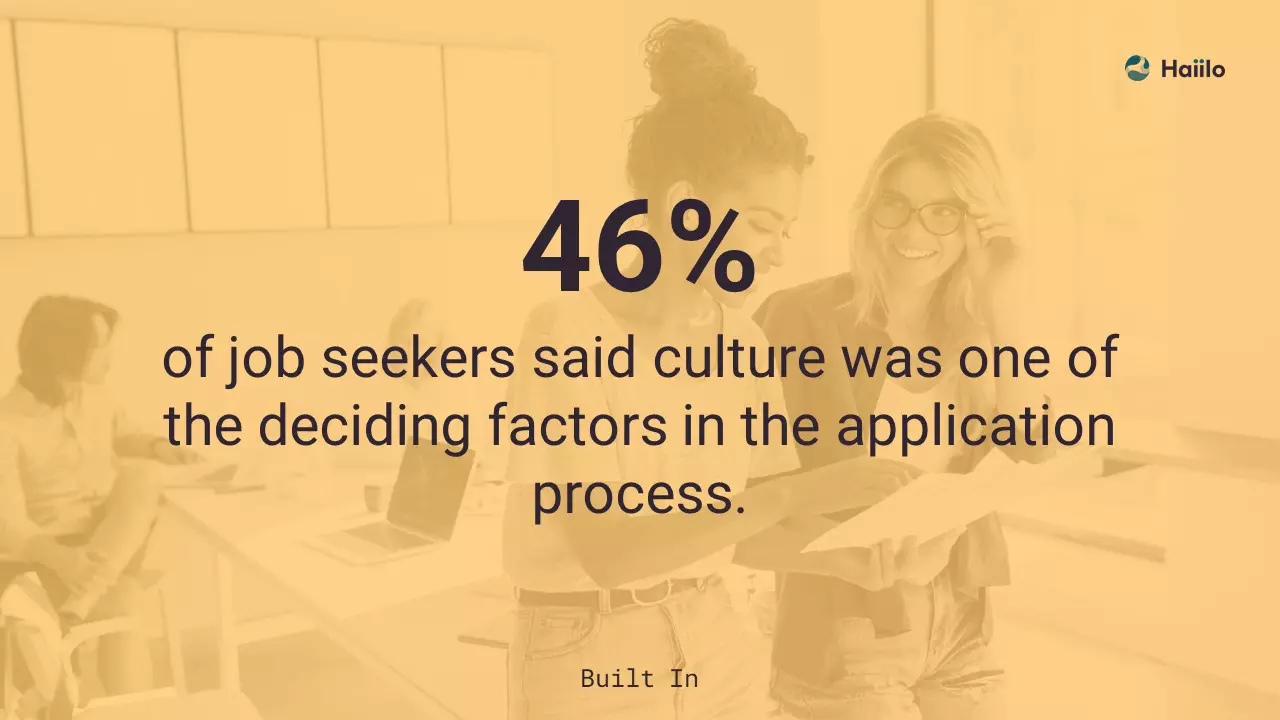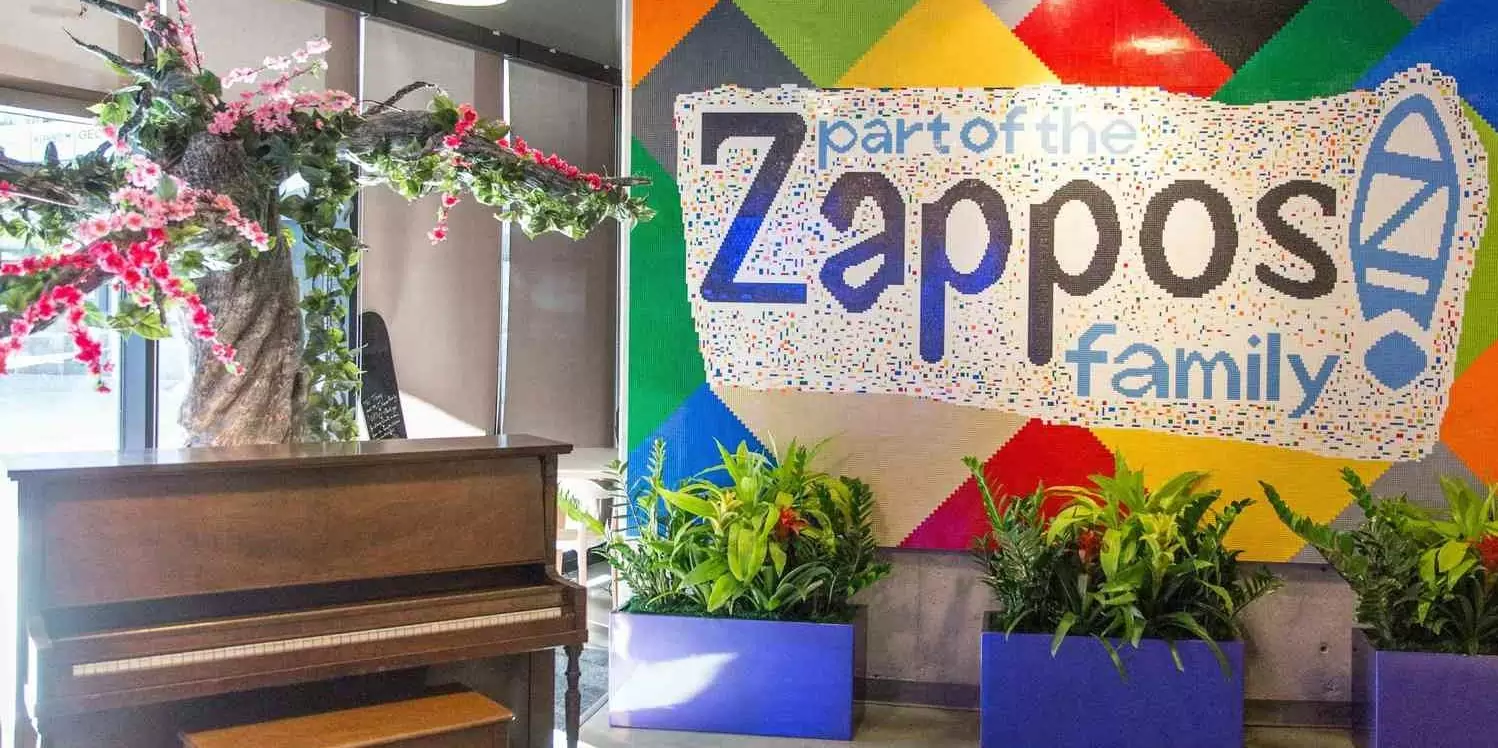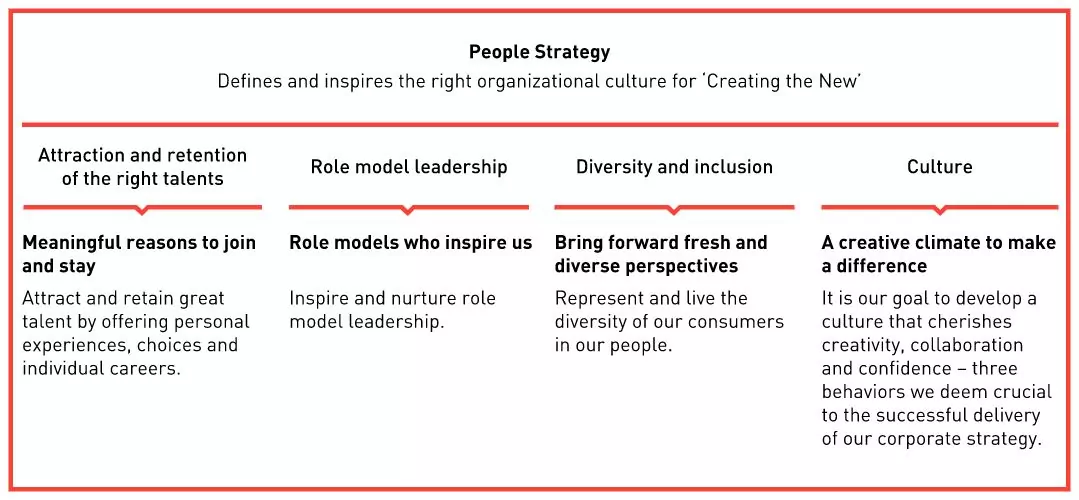Building a positive and enjoyable corporate culture is one of the main priorities for HR professionals, leaders, and other stakeholders across the world.
A good workplace culture can’t really be replaced with any other benefit as it highly impacts employees’ engagement, productivity, and overall business success.
However, building a striving corporate culture isn’t easy to achieve and maintain.
In this blog, we will define what corporate culture really is, why it is so important, and how to build culture employees will appreciate and live up to.
Corporate Culture Defined
Corporate culture, also referred to as company culture, organizational culture, or workplace culture, is defined by SHRM as:
“Something that defines the proper way to behave within the organization. Culture consists of shared beliefs and values established by leaders and then communicated and reinforced through various methods, ultimately shaping employee perceptions, behaviors, and understanding.”
Organizational culture sets the context for everything a company does, and it shapes employee experience in the workplace. Because organizations, markets, and industries can vary significantly, there is no one-size-fits-all culture template that meets the needs of all organizations.
📙 Since your company culture plays a significant role in driving employee engagement, we have prepared for you a guide for building a positive workplace culture!
Why Corporate Culture Matters
As mentioned earlier, company culture can be one of the biggest drivers for employee motivation, engagement, wellbeing, and productivity. Consequently, culture has a direct impact on the most important KPIs in human resources departments, such as employee attraction and employee retention.
According to research by Built-In, almost half of prospective employees evaluate potential employers by their company culture. 46% of job seekers said culture was one of the deciding factors in the application process, while 88% found it relatively important.

Furthermore, 15% of employees have declined a job offer due to the company’s culture.
More importantly, positive company culture is considered the most important competitive advantage a company can have. According to research by Deloitte, 82% of people believe that culture is a potential competitive advantage, and 94% of entrepreneurs and 88% of job seekers say that healthy work culture is vital for success.
However, the same survey found that only 12% of executives believe their companies are driving the “right culture”, and just 19% believe their company has the “right culture.”
📙 To ensure a positive employee experience in the workplace, check out our ultimate employee experience guide!
How to Build and Maintain a Positive Corporate Culture?
This is a million-dollar question almost every company is trying to answer. Maintaining workplace culture has become especially hard since the introduction of remote work.
There are more and more fully remote companies in the world. For them, it’s not easy to achieve continuous alignment with the core company values, organizational mission, and vision.

Yet, this alignment is one of the biggest prerequisites for business success.
So what are some must-follow steps for building a great corporate culture?
💡 Learn how to ensure a smooth transition to hybrid work.
1. Define your core company values and what your company stands for
One of the most important drivers of employee attraction, satisfaction, and retention is employee alignment with the core company values. If your employees understand your corporate values and live by them, it is much easier to have a unique culture.
Also, a culture defined by core values can help you in your talent acquisition efforts. When recruiting new people, it is important to look for that cultural fit. Otherwise, you are destined to high turnover rates and unhealthy corporate culture.
Hence, it is quite shocking that 33% of employees still don’t believe their company’s core values align with their personal values.
Employers need to better understand the importance of such alignment.
2. Drive transparent and frequent internal communications
Defined culture and values mean nothing if they are not communicated transparently and frequently to everyone. Proper internal communication is crucial here.
25% of employees are either indifferent or don’t know much about their company’s mission and what their company stands for. 33% of employees believe that they aren’t reminded of their company’s mission often enough.
Furthermore, understanding and agreeing with the company’s mission affects employee retention drastically. 71% of Millennials who support their company’s values plan to stay in the same workplace for at least one year.
It is inevitable that when employees understand your corporate culture, they are much more likely to perform better, be more engaged with their work, and stay longer with their companies.
However, don’t fall into the trap of thinking that this is the responsibility of your HR of Internal Comms departments only.
Leaders play a crucial role here.
3. Ensure that leaders act as role models
Since the pandemic and the introduction of hybrid workplaces, good leadership has played a critical role in driving business continuity and employee well-being.
Leaders are the ones who should always act as role models to the entire organization. They need to provide an example of what it means to live by core values to promote positive change. In other terms, they should be showing how to nurture the company culture with certain actions and behaviors.
The good thing is that the C-level executives understand more and more the importance of positive workplace culture. According to research, 67% of Global CEOs predict that in the future, workplace talent will focus more on corporate culture and values than they do on pay.

The increased awareness among the leaders is the first step towards building healthier organizational culture.
💡 Learn more about the importance of employee wellbeing and how to launch a well-being program in your workplace.
4. Align your corporate culture with your OKRs
One of the best ways to maintain your corporate culture is to align it with the ultimate business goals and KPIs.
By doing this, you are just helping your employees understand what’s appreciated and what to focus on.
For example, if one of your company values is to innovate and drive new ideas, one of your OKRs could be closely related to the number of new ideas or projects completed in a certain period of time.
If your company is about the culture of recognition and appreciation, you could think of a way to incorporate the number of recognitions into your company-wide KPIs.
3 Inspiring Corporate Culture Examples
There are many different examples of companies with a great corporate culture, but here are our top 3.
Zappos

When it comes to company culture, Zappos is a company that many organizations look up to. It is known for its fun and nurturing culture, as well as its stellar customer service. As CEO Tony Hsieh famously said, “Zappos is a customer service company that just happens to sell shoes.”
Yes, they have great benefits, but most companies do nowadays. What separates them from many other companies is employee empowerment and trust. Employees have the autonomy to help customers the way they see fit, rather than following strict guidelines and scripts.
This is precisely what makes them a company with one of the best customer services in the world.
Netflix
From the very beginning, Netflix wanted to achieve a company culture built on freedom and responsibility. They knew they wanted to hire people who appreciate freedom and take full accountability and responsibility for their behaviors, actions, and decisions.
They have achieved that, which is their most significant competitive advantage today.
To learn more, you can read the full Netflix Culture manifesto here.
Adidas
Adidas did a great job identifying the main aspect of their company culture. Yes, their culture also focuses on providing the best possible customer experience, but they understand that the only way to achieve that is through the people-centered strategy.

Here are the main values that drive the unique and recognizable culture at Adidas:
- Diversity, equity, and inclusion – the glue that they often refer to as ‘the belonging’- spans across every country, department, and team.
- Leadership – leaders at Adidas own the game and act as role models, empowering all people to realize their possibilities.
- Betterment – Adidas believes in a mindset of continuous learning and improvement. They are committed to providing relevant learning opportunities to upskill and reskill for the future.
- Performance – they live and breathe sport, and just like every athlete, they train and play to win. All great teams support, challenge, and cheer each other on while holding each other accountable.
How to Align Every Employee with Your Corporate Culture
Remote work, dispersed workplaces, and a multigenerational workforce make it difficult for employers to align their people with the company culture.
It is more complex than ever to reach every employee with personalized communications and catch their attention with important company news and updates.
Luckily, this pandemic has also driven an incredible development in the HR tech world. Today, we have access to technologies that make workplace communications more accessible and efficient.
Solutions such as employee engagement apps and employee experience platforms are designed to follow the latest trends in the HR world. They enable organizations to become desirable employers to work for.
If you are looking for a solution that can help you reach every employee with targeted communications at any time, schedule a Haiilo demo and learn about how other organizations use it to keep people connected and maintain their company cultures.









